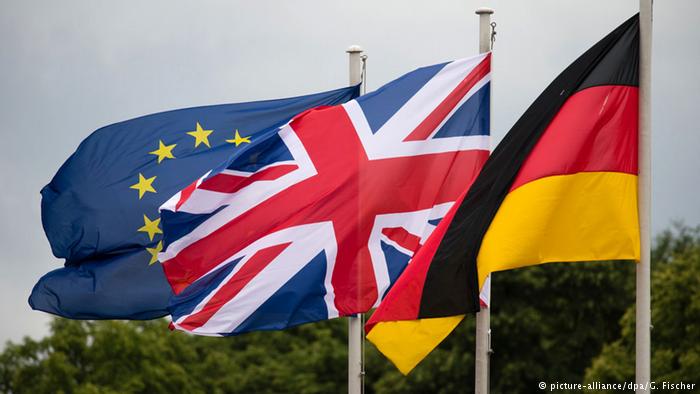The morning of Friday 24th of June 2016 was a rather surprising one for Germany. The newspapers had declared that the British voted in the majority for Leave. The surprise resonated into the evening with the ZDF (Second German Television) having spent more than half of its broadcasting time discussing the ramifications. Even though the day before it had dealt with the referendum as well – nobody had really expected this outcome, had they?
To many Germans, this outcome was a medium to heavy shock. Only the day before, cities like the small university town of Tübingen in Southern Germany had mounted up a Union Jack flag in the market square, just in front of the town hall, as if saying: ‘Please, make the “right” decision, stay with us’. Some might have even gone as far as to say that this was the second British tragedy in only half a year: David Bowie’s death in January was another shock to Europe. Yes, he has a quite respectable fan community in Germany – but, of course, also in the UK itself.
So, what do Germans think of when referring to Britain? Maybe firstly rain. But that is something that Germany can also offer perfectly by itself (especially in the north, see Hamburg). Then, it is the famous capital, London. The former EU-metropolis and hometown of fashion and music. Yes, music. The Beatles and The Rolling Stones (and more, naturally) immediately come to mind. Lastly, but not least, the Royals. Germany does not have their own monarchy and therefore happily adopts into the glamour and obsession that follows the British crown. Proven when the “Tagesschau” broadcasted the whole wedding of Prince Harry and Meghan Markle in May this year. Therefore, it is clear that Germans definitely admired British society.
Yet what do the British think of when referring to Germany? Probably Merkel, Merkel, Merkel.
But when the shocking result of Brexit came around, Chancellor Angela Merkel kept it in perspective for upset Germans: she commented on the British vote as being a “cut”, not a fatal wound. At the same time, she encouraged politicians to clearly illustrate why the European Union is improving people’s lives, definitely being in favour of the EU herself, along with most of the other political parties.
However, there is one party, founded only in the year of 2013, which asked in its last year’s manifesto for the Bundestag elections as point 1.1 (the first overall demand) for a “No to the ‘United States of Europe‘”. This party is the AfD – the right-wing populist Alternative für Deutschland. Using Brexit to spark Germany’s own withdrawal, it campaigned “modelled on Great Britain”, as stated in their programme.
So does Brexit mean a Gexit for Germany? The chairman of AfD’s parliamentary group in Thuringia, Björn Höcke, wasted no time calling for a German referendum the next day following the British referendum. Furthermore, other European states’ right-wing parties congratulated the UK for this outcome: Austria’s FPÖ, France’s Front National and the Dutch Partij voor de Vrijheid.
Yet after further examination, such a step seems impossible to the German political centre.
What happens after March 29th next year, when the UK is due to leave the EU? Especially regarding education, Brexit might be a huge mistake. According to a study by the Royal Society in 2016, the UK gained more money from the EU for research than it accounted for. Moreover, Universities UK (UUK) stated in its 2016 “University Funding Explained” that around 11 per cent of the research income came from EU sources. So what effect will Brexit have to the Russell Group Universities? And to EU-funded programmes such as Erasmus+?
In Germany, students do not have to pay tuition fees for attending public universities. At the ‘Freie Universität Berlin’ (FU), students are only required to pay around 350 Euros per semester in order to finance the Student Union and for using public transport. That is also why studying a semester abroad in Britain appears very tempting to Germans – because thanks to Erasmus+, they do not have to pay fees – they get financial help because they live within the EU. The FU sent nearly a hundred of its students to the UK in this current academic year alone. That was the second-highest number, just behind France. Is this highly requested programme for the UK going to continue to be available?
There are so many questions – their outcomes seem quite unpredictable.
One can say that the UK leaving the EU is for most Germans, and especially students, a regrettable step. But certainly, the UK is not going to leave the European continent. It is going to leave the organisation. An aspect which should not be forgotten.
Anna Ehlebracht

